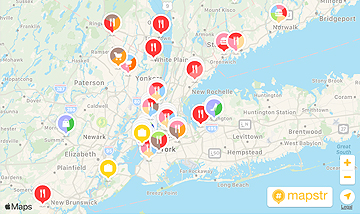
Conference to launch a global initiative on diagnostic testing, treatments and vaccines
 The Covid-19 pandemic is an unprecedented global crisis and calls for a large-scale international response in order to address its health, economic and social consequences all over the world.
The Covid-19 pandemic is an unprecedented global crisis and calls for a large-scale international response in order to address its health, economic and social consequences all over the world.
For several weeks now, France, together with its partners, has been taking the initiative to develop a swift and effective multilateral response. In practical terms, this involves:
- Strengthening coordination on the health and economic fronts at the G7 and G20.
- The initiative to support health systems and economies in Africa.
- The UN Security Council initiative to enable a humanitarian truce in the face of the pandemic.
- The initiative on diagnostic testing, treatments and vaccines in close coordination with the WHO, the EU and all international actors.
A huge amount of work is already being undertaken, all over the world, to develop effective ways to combat Covid-19. In order to accelerate the process, President Macron stressed the need to work together and called for the establishment of unprecedented partnerships between all stakeholders (states, regional and international organizations, public and private stakeholders, research, development banks, civil society).
The initiative
On April 16, President Macron held a telephone conference with the heads of the main international organizations in the global health field involved in the response to Covid-19 (the WHO, Global Fund, UNITAID, GAVI, CEPI, the Wellcome Trust, the Gates Foundation, the World Bank, the Patent Pool, as well as Françoise Barré-Sinoussi, Director of the Analysis Research and Expertise Committee) in order to strengthen international coordination in conjunction with the WHO and develop a multilateral initiative. The participants agreed on the need to implement a coordinated and comprehensive initiative, focusing on efficiency and equity.
This exchange provided an opportunity to identify a call for collective action, the goal of which is to accelerate the development of, and access to, treatments, diagnostic testing and vaccines, including in the poorest countries.
This appeal is based on four pillars:
- Diagnostic testing;
- Treatments;
- Vaccines;
- Support for health systems in the most fragile countries.
This initiative includes the research, production and distribution of these health products. It is inclusive and open to other relevant partners involved in the Covid-19 response (pharmaceutical industry, private sector in general, research, national and regional development banks, civil society organizations).
In order to officially launch this initiative, a public video conference was held on Friday, April 24, in the presence of several heads of state and government and key global health actors. UN Secretary-General Antonio Guterres, WHO Director-General Dr. Tedros and French President Emmanuel Macron will lead this initiative, alongside European and international partners.
Objectives:
- Accelerate the development and production of diagnostic testing, treatment and vaccine options. The challenge is all the greater given that a growing number of countries and regions are seeking to gradually lift the confinement measures taken to curb the spread of the virus.
- Guarantee safe, fair, universal access to diagnostic testing, treatments and vaccines. We must immediately devise a comprehensive approach to ensure that nobody is left behind and to implement a just, transparent, fair, effective and swift international response.
- Shore up healthcare systems to combat Covid-19 and continue the fight against other diseases. The Covid-19 pandemic has a very heavy impact on the most vulnerable people worldwide. Strengthening healthcare systems on a global level is vital to helping countries combat the pandemic, ensure their healthcare systems are not overwhelmed by the crisis, and preserve the progress achieved in the fight against HIV, tuberculosis and malaria.
The efforts undertaken to meet these goals are grounded in three major principles:
- Coordinating actors around the common principles of action contained in the appeal.
- Support for this historic coordination effort by the international community
- A funding deadline of May 4.
France, a committed actor in support of global health
For several years now, France has been heavily involved in global health. In the early 2000s it was at the forefront of the creation of major multilateral organizations that improved access to public health for the countries of the Global South: the Global Fund, to combat HIV/AIDS, tuberculosis and malaria; Gavi, the Vaccine Alliance, to promote vaccination; and Unitaid, to promote innovation for all.
President Macron stepped up France’s commitment to this inclusive, global, cooperative vision of health vis-à-vis multilateral organizations, particularly by hosting the Replenishment Conference of the Global Fund in Lyon last October and increasing France’s contribution by 20% on that occasion.
Furthermore, on April 9 France announced that it was launching the Covid-19 – Health in Common initiative to respond to the health crisis sparked by the pandemic in the most vulnerable countries of Africa, the Indian Ocean, the Caribbean, and the Middle East. With funding of €1.2 billion, it will be able to swiftly shore up healthcare systems, regional epidemiological surveillance networks and NGOs working on the ground.
Actors collaborating closely with the WHO:
- UNITAID was established in 2006 at the initiative of France and Brazil to catalyze access to health innovations and facilitate their scale-up.
- Gavi, a global alliance established in 2000, has played a key role over the past 20 years in facilitating access to vaccines and their distribution in developing countries.
- The Global Fund, established in 2002, works to end AIDS, tuberculosis and malaria epidemics. It is working to strengthen healthcare systems in the fight against Covid-19.
- CEPI (Coalition for Epidemic Preparedness Innovations) is a public-private partnership launched at the 2017 World Economic Forum; its goal is to fight epidemics and diseases for which there is not yet a vaccine.
- The Bill & Melinda Gates Foundation was established in 1994 and is a philanthropic organization that funds development and global health
- The Wellcome Trust is a foundation whose aim is to improve health by supporting science and research to meet major health challenges.
- The World Bank has established an emergency plan to help them deal with the health and economic consequences of the pandemic.
-
Advice to travelers
January 15, 2021 -
Covid-19 - Advice for Foreign Nationals in France
June 14, 2020













